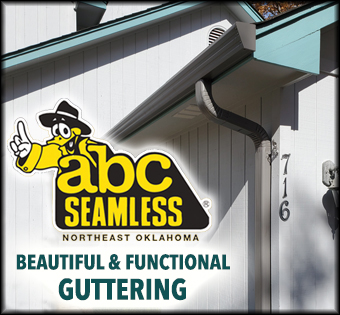How to Avoid Home Improvement Catastrophes
Greg Wolter of Community Builder’s, Inc. shares a list of guidelines for finding the right home improvement contractor.
By: Lorrie Jackson | Category: Home Improvement | Issue: February 2007
Greg Wolter, owner of Community Builder’s, Inc.
The Better Business Bureau receives thousands of complaints each year from customers dissatisfied with all types of services. One industry, however, received more complaints than any other: building contractors, who surpassed even the auto repair industry in this un-coveted distinction. If you believe all the stories out there, it is no wonder. Tales of unfinished projects, repeated delays, poor communication and surprise costs could scare anyone away from embarking on a major home improvement project.
Even with this, however, Greg Wolter, owner of Community Builder’s Inc. was surprised at this bit of news from the BBB. Perhaps it is because he has spent his career as a home improvement contractor adhering to the highest standards of excellence in his business. He asserts that the horror stories need not deter those who want to increase their home’s value and their own enjoyment of that home through a major home improvement project. “People don’t have to be afraid to work with a contractor,” he says. “They just have to know what qualities to look for.” Wolter’s suggested list of qualifications may seem long, but considering the risks involved it is well worth the time and effort to check each category thoroughly before entering any agreement with a home improvement contractor.
Reputation: When considering a home improvement contractor, one of your first considerations should be the business’ reputation. Not only should it be able to display membership and history with the Better Business Bureau, but it should also be a member of its local Chamber of Commerce and hold memberships with trade associations. Customer references should be readily available, and if a contractor has been in business long enough to build a solid reputation, they will probably have been featured in a magazine or newspaper and will have won awards and certifications.
Community Builder’s Inc. is a member of the BBB, The Tulsa Chamber of Commerce, The National Association of Remodelers and the Tulsa Homebuilder’s Association. It received an Ethics and Business Award from the National Association of Siding and Window Dealers, and has twice won customer satisfaction awards from the Home Service Store (an affiliate of Sam’s Warehouse).
Stability and Longevity: A business should also have proof of longevity and stability. Does the business have an office? Does that office provide a home for the necessary functions of a successful business, from accounting to sales? If a contractor simply works out of his pick-up truck, it may be a sign that the business is less than stable.
Community Builder’s Inc. celebrates its 25th year in business in the Tulsa area this year. Potential clients can visit Greg Wolter at his office where the business’ awards, references and documentation are available for review.
Documentation: Some say a picture is worth a thousand words, but while pictures of home improvement projects may be fun to look at, words are far more important when searching for a contractor. According to Wolter, a stable contractor should have Bank Letters, which are signs of financial stability and the bank’s confidence in the character of the contractor. Supplier letters should be available to view as well, proving that the company can easily obtain needed supplies. Supplier letters are easy to obtain, so if a contractor cannot produce one, this should throw up an immediate “red flag” for the prospective client. Most importantly, the business should proudly display a Certificate of Liability Insurance with no less than $500,000 and preferably $1,000,000 or more of coverage. If the contractor’s insurance is insufficient (or non-existent), the contractor would have to shoulder the liability for any damages or injuries, and often contractors cannot afford this. You as the client would then end up with the bill.
Wolter especially stresses the importance of checking your contractor’s insurance. “It is amazing how many contractors do not carry liability or worker’s compensation,” says Wolter. “It is a major percentage.”
Professional Behavior: When you embark on a home remodel, your “space” will be invaded for a time by workers. That is why it is so important for your home improvement contractor to act with the utmost professionalism and he should not be afraid to sign papers to ensure you and your property will be treated with the proper respect. According to Wolter, the contractor should provide a Worker Conduct Agreement (a 17 point contract prohibiting bad behavior on the job site), a detailed Bid Specification Agreement, a No Sales Pressure Agreement and a Jobsite Cleanup Roster.
Warranties: A good contractor will stand behind his work, providing an “apples to apples” price protection, money-back guarantee, a no nonsense lifetime warranty against defects in materials and workmanship and a lifetime glass replacement guarantee. “A good contractor will have no problem providing guarantees on his work,” says Wolter. “And the irony is that the better a warranty is, the less likely you are to need it.”
Greg Wolter does not just espouse the above mentioned guidelines: he strives hard to follow each and every one of them. If you are ready to begin a home remodel or improvement project, visit Community Builder’s Inc. and discuss your options with an established, reputable home improvement contractor who goes “above and beyond” to make sure you are completely satisfied with your finished product.
For more information, contact
Community Builder’s Inc.
Community Builders, Inc.
For more information, contact:
Community Builders, Inc. - Old
(918) 836-5055
eat0@eau0eav0eaw0
8220 E Skelly Dr | Tulsa, OK 74129
www.CommunityBuildersinc.com
![]()
![]()
![]()
More about Community Builders, Inc.:
More ArticlesSubscribe
For Free!



